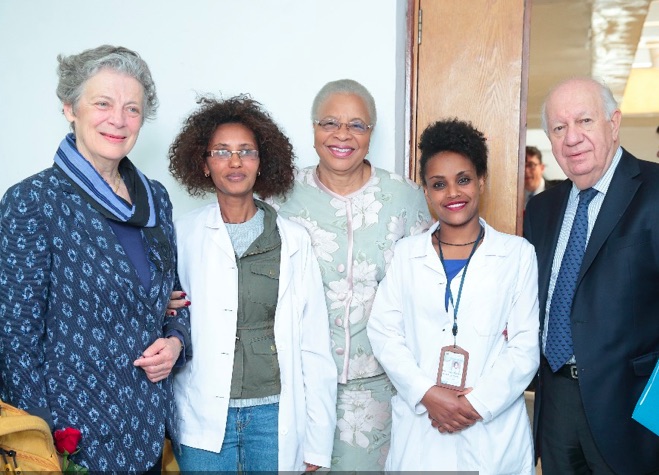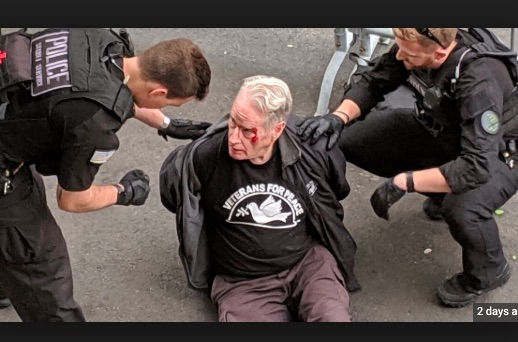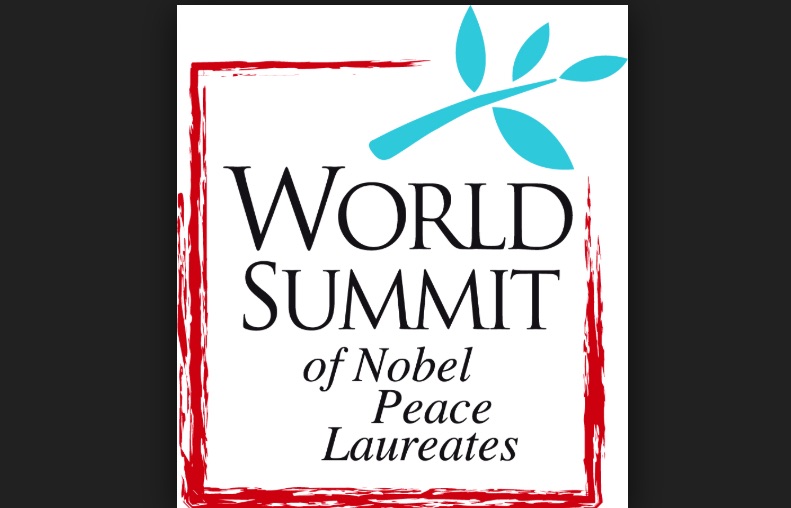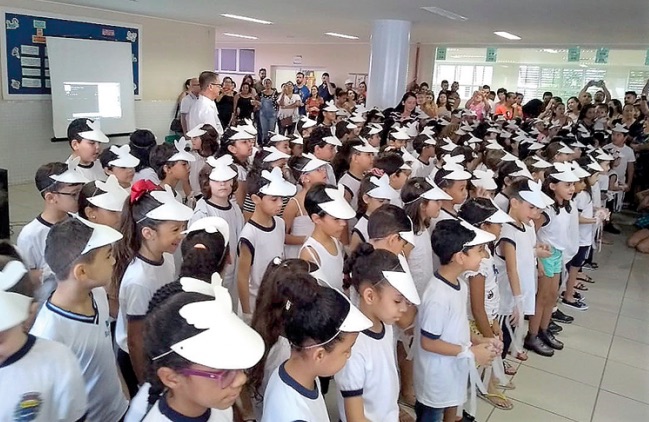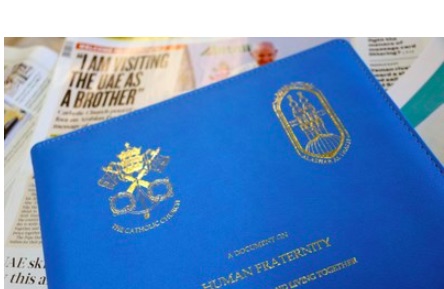FREE FLOW OF INFORMATION
A blog by Richard Falk
Not long ago a cherished friend directed a remark at me during a dinner with several other friends: “You keep sticking your neck out. I used to do that, but I don’t do it anymore.” At the time, I listened, unsure whether it was a rebuke—‘isn’t it time to grow up, and stop exposing yourself to ridicule and behind the back dismissals’—or merely an observation. on different ways of growing old. I am still unsure, but it made me think.
It had never occurred to me to stop signing petitions or writing blogs that staked out controversial positions, sometimes with provocative language. It seemed. like an extension of my ideas about global civic responsibility in a democratic society,a matter of trusting and acting upon the dictates of conscience and the affectionsof solidarity. I didn’t start making my views known in public spaces until my mid-30s at the onset of the Vietnam War in the 1960s. In recent years, aside from periodic writing on my blog, I am mainly responding to requests for support of activist and academic initiatives by kindred political spirits or sympathetic journalists.
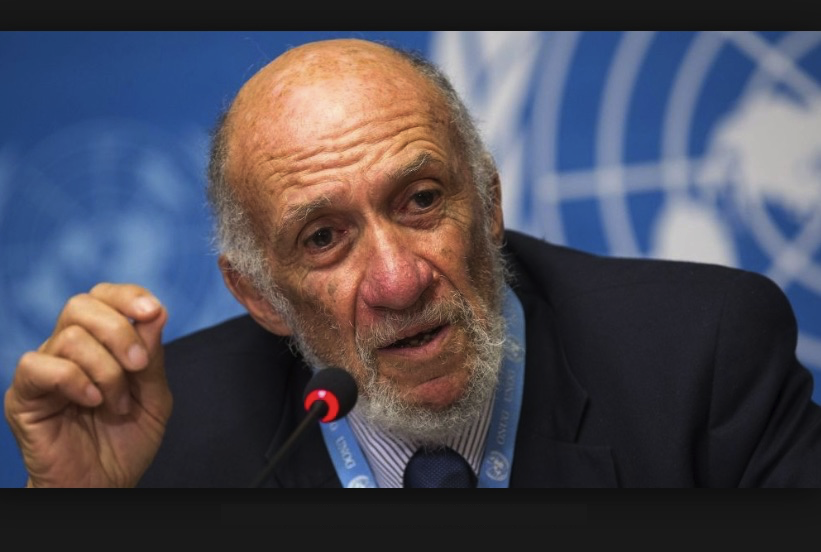
I suppose that a certain level of public notoriety followed my period as UN Special Rapporteur on Occupied Palestine during the period between 2008 and 2014. During those years I was under quite frequent attack by Zionist zealots, often operating under the misleading camouflage of NGO auspices with such anodyne names as UN Watch or NGO Monitor. It was defamatory and malicious, but it left an imprint in the mud. For those who know me best the main accusations didn’t make sense. I was clearly neither an ‘anti-Semite’ nor ‘a self-hating Jew.’ I suppose it was empirically accurate to consider me as an ‘anti-Israeli and anti-Zionist extremist,’ although I don’t think of myself in this way. True, my views on Israel/Palestine and the Zionist Project were overwhelmingly in support of the Palestinian national struggle for basic rights, including the right of self-determination, but this also represented my understanding of the application of relevant rules of international law and morality. I also came to believe that the Zionist insistence on ‘a Jewish state’ was the source of legitimate Palestinian resistance, and to quell this resistance Israel resorted to the establishment of apartheid structures of discriminatory separation and domination, the elements of apartheid as an instance of a crime against humanity (as specified in Article 7 of the Rome Statute governing the operations of the International Criminal Court). I never thought of reaching such conclusions as sticking my neck out. I thought expressing these views while holding the UN position was an aspect of doing my unpaid job. This represented my sense of professional duty, including the recognition of the importance of civil society activism devoted to obtaining global justice.
Back at Princeton, especially after my visit to Iran in early 1979 during the last stage of the revolution, and the pushback I received after publishing an opinion piece in the NY Times expressing my hopes and concerns about the future of the Islamic Republic, I did myself, partly as a gesture of self-irony, adopt the metaphor of sticking my neck out, attributed this move to my love for giraffes, their grace, absence of vocal chords, and strong kick. The giraffe became my totem, and my home was soon filled with carved and ceramic giraffes acquired during my trips to Africa. A friend with gifts as a woods craftsperson even made me a life-sized replica of a baby giraffe, which was slightly taller than I, and provided a vivid reminder of this identity that dominated my Princeton living room for many years. Yet, strangely, after moving to California I never thought about sticking my neck out until my friend reminded me, and led me to think about whether I am frozen in patterns of behavior apt only for those who are young or middle aged. The question for me is not whether we should stop caring after 80, but only whether it is unseemly for the elderly to keep acting. Or perhaps having chosen ‘retirement’ from Princeton implies that I should stop actingas if I care, and leave the future to those young enough to have a more significant stake in what is happening and where it is leading.
A related kind of feedback from someone even closer was along the same lines, but could be classified as ‘a loving rebuke.’ It was the insistence that I was ‘obsessed’ with Israel/Palestine, and I should move on to other concerns as bad or worse than the Palestinian ordeal, with the example given of the horrifying persistence of the Yemen War with atrocities an almost daily occurrence. Here, I resist more than I reflect. Yet this is a matter of heart as well as head. From both sides, as my loving friend also insisted that she was saving my reputation from being permanently mired in mud, telling me I was smearing my own legacy by continuing to speak out critically of Israel and Zionism.
(Article continued in the column on the right)
Where in the world can we find good leadership today?
(Article continued from the column on the left)
I have long believed that outsiders have much blood on their hands in relation to evolution of Palestine and Israel ever since the issuance of the Balfour Declaration in 1917. Beyond this, the United States had the leverage, responsibility, and opportunity for decades to make a political compromise happen, but refused to explore such an option evenhandedly. Instead, the U.S. Government, especially after 1967, subsidized Israel’s militarization to the point where it has become a substantially autonomous and affluent regional power, and yet continues to receive more than $3.8 billion per year, proportionately to population far more than any other country. A compromise might have accommodated Palestinian basic grievances sufficiently to produce a sustainable peace, although it would still have required the Palestinian people to swallow a large dose of injustice taking the form of outside forces imposing an alien political template on their future, which is the essence of colonialist expansion.
During the Trump presidency with its unseemly responsiveness to Netanyahu’s wishes, the situation facing the Palestinian people has further deteriorated in rather dramatic ways: the American embassy has been moved to Jerusalem, the Golan Heights have been formally annexed following a green light from Washington, unlawful settlement building has accelerated, funding for essential UNRWA education and health services have been cut to zero, and even the pretension of the near universal international commitment to the two-state solution has been pointedly abandoned. Waiting for ‘the deal of the century’ seems likely to be either a matter of waiting for Godot or an ultimatum disguised as a peace plan demanding Palestinian surrender to Israeli one-statism.
And there is the outrage of a well-funded campaign to brand supporters of BDS and justice for the Palestinians as anti-Semites. This was never done during the global anti-apartheid movement after it adopted a BDS approach to South African apartheid. Why is Israeli apartheid being treated so differently? With amoral opportunism, debasing Jewish memories of the Holocaust, Zionist zealots, with money and encouragement from Tel Aviv and wealthy diaspora donors, are distorting reality by using Nazi genocidal tactics against Jews to intimidate those seeking justice for both peoples. What is as bad is the degree to which most of the governments of the West go along with this smear campaign even altering the definition of anti-Semitism to conform with these lamentable tactics. To get the fuller picture this use of anti-Semitism as a smear tactic confuses the threats associated with the return of real hatred of Jews as embedded in the scary second coming of fascism with diaspora Jews again cast in the role of the unassimilable other, a degenerate enemy of the global wave of ultra-nationalism.
With this understanding, I can no more turn away from the Palestinians than those closest to me. It would represent a tear in the fabric of the life and love I have lived and affirmed. It is, for better or worse who I am and who I will always be. It may dim my image in the mind of many decent people of liberal persuasion, but I value self-respect and personal sovereignty more than the conditional affection of others. Having written in this vein, I also wish to affirm my identity as a Jew, and my realization of the desperation ignited by the Nazi experience. Yet such an experience could as easily have been tinged with compassion rather than a racist willingness from its very origins of an intention to displace, dominate, and victimize the majority long-term residents of Palestine. Offsetting this intention by reference to a Jewish biblical or historical entitlement has neither legal nor moral weight in my opinion.
Having so far affirmed continuity of belief and practice, there is something to be said in favor of discontinuity, breaking old habits inspired by giraffes running across an African savannah or overcoming obsessions even if morally inspired and intellectually justified. Choosing discontinuity has something to do with learning how to age so that the inner self takes command. The Hindu tradition emphasizes stages of life, to be a house-holder or family person until the age of 60, and after that go forth alone to nurture spirituality generally long marginalized by the pressures of ordinary life, if not dormant. Thinking along such lines, may make my defense of continuity of engagement seem shallow, if not wrong or at least exhibiting a stubborn streak.
Having so pondered and reflected, I am no nearer to closure. It feels inauthentic to abandon unfulfilled commitments, and yet to reconcile myself to being nothing more than a pale projection of my past seems a defeat. At least, this semi-meditation has made me more knowingly confused, and I share it on my blog because I feel that the dilemmas of ageing confront us all at some point, and are rarely faced clearly in Western culture, often inducing various degrees of denial, depression, and feelings of lost relevance and disengagement. I have chosen activism to the end, both continuing with sports to the limit of my ability and to honor the political commitments of a citizen pilgrim (dedicated to a journey to a desired and desirable political community that functions now only as an imaginary, yet has the ambition to become a political project) to the best of my ability.
[Editor’s note. On a subject that CPNN has recently reviewed, see also Richard Falk’s recent blog about Julian Assange in which he sites the Nuremberg Principles of 1946, including “Complicity in the commission of a crime against the peace, a war crime, or a crime against humanity… is a crime under international law.” He concludes that “Fairly read, this proposition would suggest that the U.S. Government moves to prosecute Assange are themselves crimes, while the acts of Assange are commendable efforts to prevent international crimes from continuing.”

